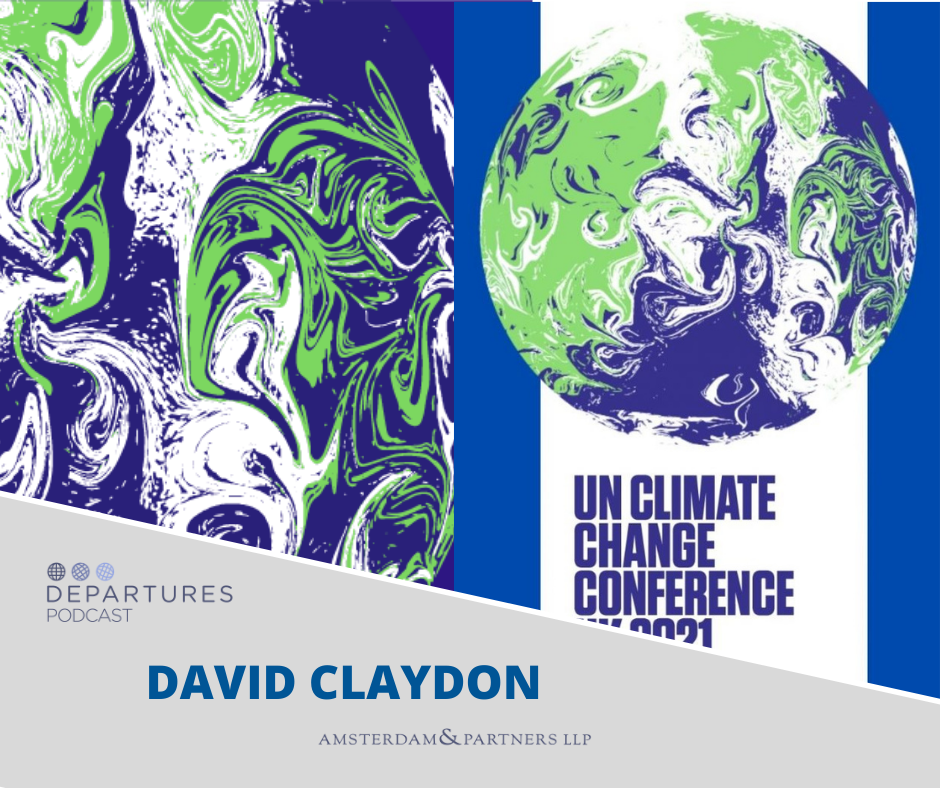Departures Podcast with David Claydon, founder of Kaya Group

As world leaders gather in Scotland for the COP26 climate change summit this week, there’s a tremendous level of scrutiny not over the ambitions but the shortcomings of the world’s biggest sources of emissions.
This week, Departures is pleased to invite David Claydon, the founder of Kaya Group, which is an advisory firm which helps companies, investors, and governments navigate climate change policy and the decarbonization process.
Claydon, who will be among the delegates in Glasgow, is clear-eyed about the stiff challenges facing the major players. Xi Jinping will not be attending, so little progress can be expected from China. Russia shows only a passing interest and little ability to transition away from its fossil fuel economy, while India is not expected to deliver much in the way of promises.
US President Joe Biden, meanwhile, arrives with a dearth of trust and credibility, with his reconciliation budget package held up by the Republicans and members of his own party. Claydon points out that the pandemic has made COP26 all the more challenging.
“There was a lot of hope that the COVID vaccine distribution question would be a great test of solidarity between developed countries and developing countries,” says Claydon. “But if it was a test, Western countries have failed it. The lack of distribution of vaccine has been another factor undermining trust between countries.”
But we “shouldn’t be too pessimistic,” Claydon argues. The US may not have the credibility to go to COP26 and issue demands, but that’s not what COP26 is all about, it’s all about each nation declaring what they intend to achieve and then keeping to that. And President Joe Biden, Claydon says, should be able to muster “just enough” credibility to follow through with the decarbonization goals set out this past Earth Day.











